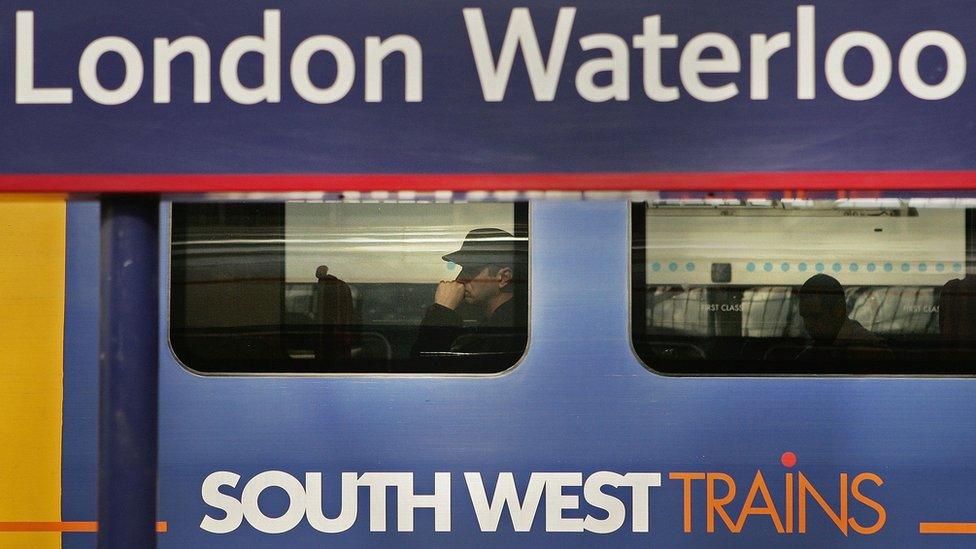South Western Railway warned it could be placed in public hands
- Published
- comments
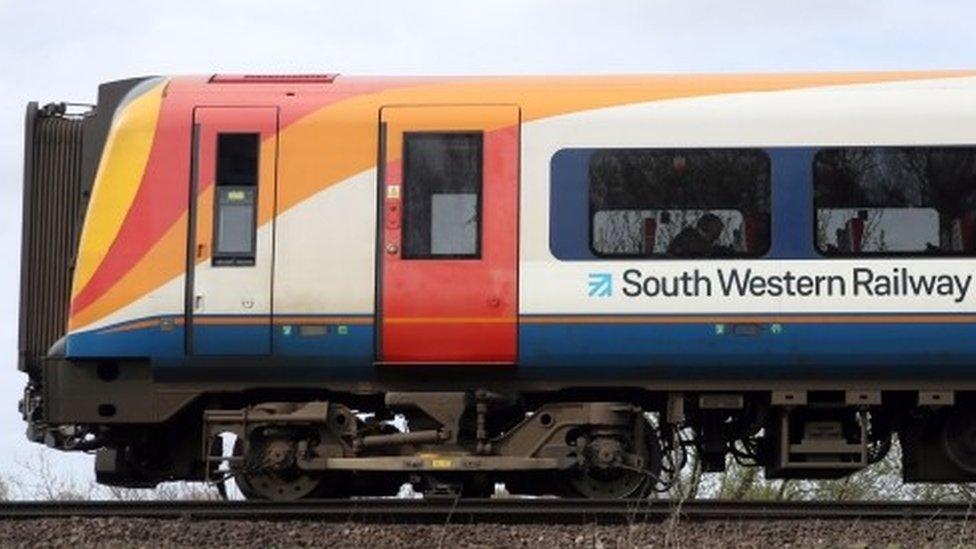
The transport secretary said South Western Railway's performance was "significantly below expectation"
A rail firm could be taken in to public ownership should it fail financially, the government has said.
Transport Secretary Grant Shapps said South Western Railway's (SWR) franchise was now "not sustainable in the long term"
The company recently declared a £137m loss.
It said it was involved in "ongoing and constructive discussions" with the government over remedies for the problems with its franchise.
Contingency measures include issuing a short-term contract to SWR's owners or moving its operations to the Department for Transport, Mr Shapps said.
SWR services were disrupted for 27 days in December by the latest in a series of strikes over the future of guards.

Analysis
By Paul Clifton, BBC South transport correspondent
It's pretty clear SWR's franchise is not going to survive in its present form.
The government has three choices.
It can tear up the South Western franchise, and agree a new one.
It can hand the same people a short-term management contract in which the government bears the financial risk, and the operator receives a fee. That's how neighbouring Govia Thameslink Railway is run.
Or, as a last resort, it can strip SWR of its contract and run the trains directly.
Changing the owner won't alter the underlying problems. They're also partly down to Network Rail, partly down to new and refurbished trains arriving late, and partly down to the RMT union's two years of strikes.
Do you blame the company for signing an ambitious deal that turned out to be undeliverable? Or do you blame the Department for Transport for not doing its due diligence and demanding the impossible? You choose. Either way, how this railway is run is going to change.

Mr Shapps said SWR had "not yet failed to meet their financial commitments" but the department "must prepare suitable contingency measures".
He said poor punctuality and reliability combined with slower revenue growth has led to the operator's financial performance being "significantly below expectation" since the franchise began in August 2017.
SWR's operations could also be moved to the Operator of Last Resort (OLR), a public sector operator wholly owned by the Department for Transport.
He insisted the moves would "not impact on the railway's day-to-day operations" for passengers and staff.
Earlier this month SWR's accounts, external, for the year ending 31 March 2019, showed a loss after tax of £136.9m.
The firm operates routes between London Waterloo, Reading, Bristol, Exeter, Weymouth, and Portsmouth, as well as Island Line on the Isle of Wight.
SWR's owners FirstGroup and MTR were awarded the franchise in August 2017, after outbidding previous operator Stagecoach.
In a statement FirstGroup and MTR said: "We continue to be in ongoing and constructive discussions with the Department for Transport regarding potential commercial and contractual remedies for the franchise and what happens next as we seek to ensure the right outcome for our customers, our shareholders and the government."
The RMT union, which is in dispute with SWR over the role of guards on its trains, said the government was "throwing good public money after bad and trying to breathe life into the rotting corpse of privatised rail".
General secretary Mick Cash said: "Instead of dreaming up new ways to subsidise private sector profits by attacking civil liberties, [Grant Shapps] should stop pushing cost-cutting driver only operation and bring SWR into public ownership, running it in the interests of passengers and workers not his mates in the City."
- Published7 January 2020

- Published2 December 2019
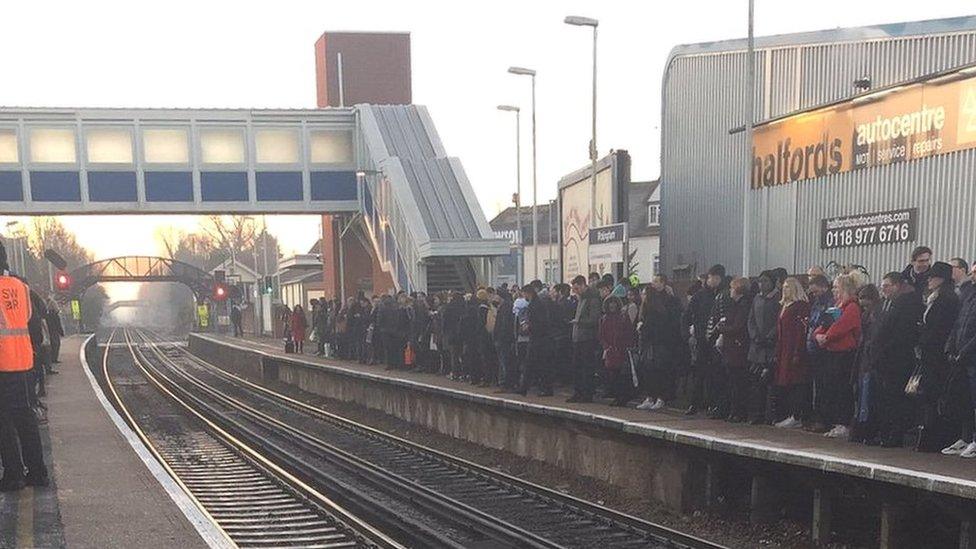
- Published29 November 2019
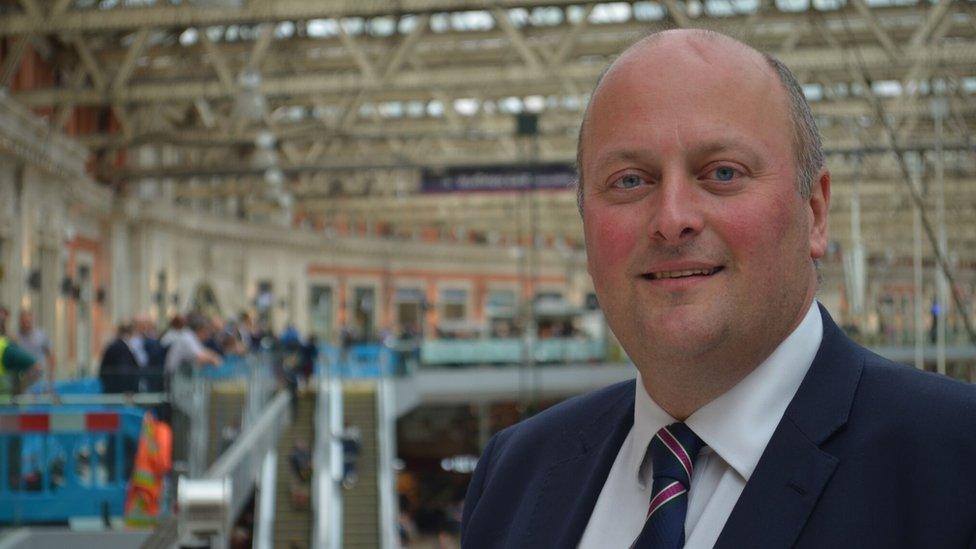
- Published30 March 2017
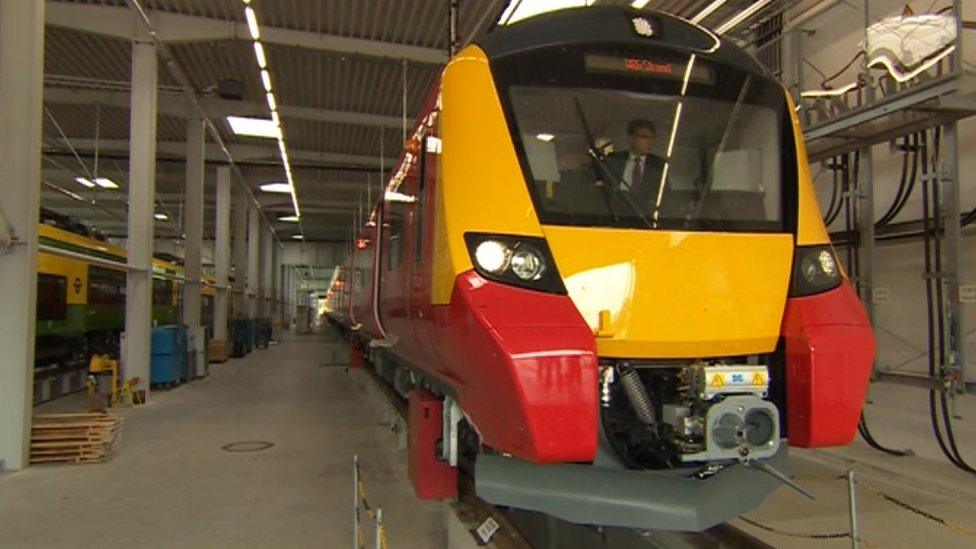
- Published27 March 2017
